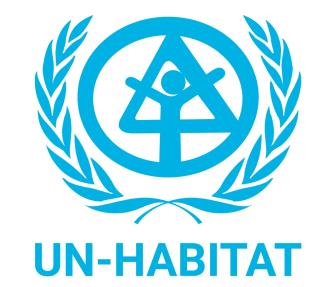WUF12 high-level dialogues, roundtables and special sessions began in earnest on day two. In the morning, participants discussed the housing affordability crisis in a dialogue on “Housing Our Future,” and considered ways that cities can reduce carbon emissions in a dialogue on “Cities and the Climate Crisis.”
Want to dig deeper into today's talks? Read the full Earth Negotiations Bulletin daily report.
In the housing dialogue, Anacláudia Rossbach, Executive Director, UN-Habitat, drew attention to the current historically high gap between people’s incomes and housing prices, and speakers proposed solutions through both policy and practice. Their recommendations included, for example, using blended finance approaches that bring together public subsidies with domestic savings and private investment and encouraging the use of non-traditional building materials, which cost less than imported concrete, cement, and steel, produce lower emissions, and can be developed in-country, thus providing jobs.
In the dialogue on cities and climate, Yasmine Fouad, Egypt’s Environment Minister, drew attention to Egypt’s leadership of a network to promote nature-based solutions to the climate crisis. The event featured a keynote by Carlos Moreno, the originator of the 15-Minute City concept, who highlighted the prevalence of spatial and temporal inequalities related to housing affordability, as people move to city fringes and must spend long hours commuting to workplaces. He also noted that humanity is already living in a climate emergency, as evidenced by the recent flooding catastrophes in European cities.
In the afternoon, Special Sessions addressed human health in urban contexts and efforts to achieve a zero-waste world. The day also featured many interactive events around the venue and within the Special Sessions. Many participants remarked on the value of experiential learning, as they took part in an African drum circle and viewed a fashion show that demonstrated glamorous creations from textile waste.
A four-hour Ministerial Roundtable—billed as “the biggest and the longest” WUF12 event—featured high-level speakers from more than 70 countries, including many cabinet ministers and mayors of cities. Speakers showcased their countries’ achievements toward sustainable cities. For example, China pointed to achievements in “people-centered urban development with Chinese characteristics” to provide significantly improved housing, and Brazil outlined its significant investments in areas such as housing and homelessness, water and sanitation, and climate resilience.
The day concluded with a Special Session on “A Space For All,” in which UN-Habitat highlighted its commitment to supporting universal access to safe, green, and accessible public spaces. Laura Petrella, UN-Habitat’s Chief of Planning, Finance and Economy, highlighted the organization’s creation of 137 such spaces in 90 cities, benefiting 2.3 million people. She invited all to visit the newly-opened Al Asmarat public space in Cairo, as the newest example of this work. Several visual artists presented examples of their public art, which address the challenges of climate change, waste management, and the experiences of migrant and refugees. Ethan Kent, Placemaking X, spoke about how public art can support an inclusive society as “everyone feels they can be part of the narrative.”

